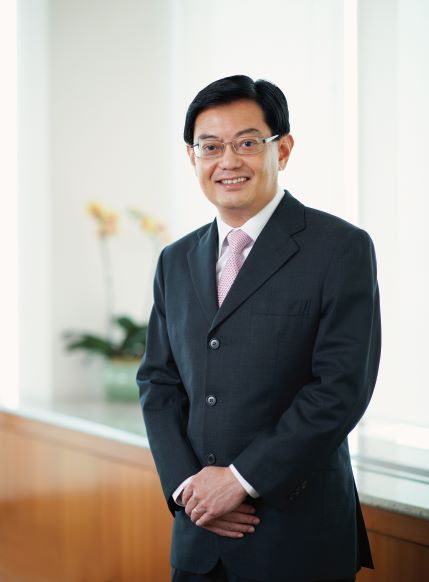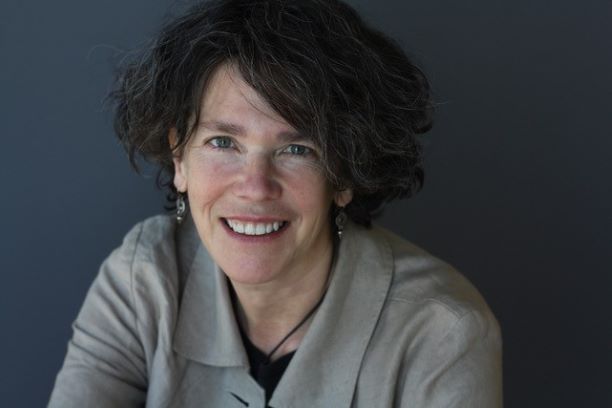Christ's is thrilled to welcome two new Honorary Fellows - Professor Tanya Luhrmann and Mr Swee Keat Heng.

Swee Keat Heng - elected an Honorary Fellow
I still remember that day vividly, when I left Singapore on a scholarship to read Economics at Christ’s College in 1980. It was the beginning of a journey with many firsts.
It was my first time on an aeroplane, it was also the first time for me to see what the world was like outside our island nation. It was the first time I was learning from so many great minds, and with fellow students. It was also the first time I met the woman who would eventually become my wife and mother of our two children – Hwee Nee. I am grateful to have spent my formative undergraduate years at Christ's, chalking up all these wonderful first-time experiences.
Reading Economics at Christ’s – together with students from the UK, Europe and Asia – was indeed an eye-opening experience for me. During my formative undergraduate years, I learnt that it is simply not possible to merely reduce complex matters into simple equations. It made me think deeper on how different forces interact and produce certain outcomes, which in turn create feedback into the next round of behaviour. These lessons remain with me.
I graduated from Christ's and started my first job in the Singapore Police Force, which lasted for a good 12 years. Following that, I did my Masters in Public Administration in the Kennedy School of Government at Harvard University before taking on the role as the Principal Private Secretary to then-Senior Minister Lee Kuan Yew, who was a Cambridge alumnus as well. Working and learning from Singapore's founding Prime Minister was the highlight of my career in the public service.
I was able to directly apply what I had learned in my subsequent public service appointments including as Permanent Secretary of the Trade and Industry Ministry and Managing Director of the Monetary Authority of Singapore (MAS). I was in MAS during the 2008 Global Financial Crisis, and I was glad that our monetary policy responses were appropriate for the economy during the downturn and the eventual recovery.
I entered politics in 2011 and served as Minister for Education (MOE) from 2011 to 2015, during which I led Our Singapore Conversation, a national consultation exercise that engaged close to 50,000 Singaporeans on their aspirations for Singapore's future.
Currently, as Singapore’s Deputy Prime Minister and Minister for Finance, I manage our national budget, oversee corporate governance regulations, and supervise the prudent investment and utilisation of public funds and government reserves. I also chair the Future Economy Council as well as the National Research Foundation, which sets the direction for Singapore's research, innovation and enterprise strategies.
I am greatly honoured to be elected an Honorary Fellow. May the College never cease to shape minds and lives. And I trust the College will continue with this fine tradition of developing impassioned and informed young people who can contribute to making a better world for all of us.

Tanya Luhrmann - elected an Honorary Fellow
It is a great pleasure to have been elected an Honorary Fellow at Christ’s College. I remember my four years there as a Research Fellow with much happiness. My own room overlooked the Fellows’ Garden. I loved the fact that there were bees back there. I still have the last jar of honey I left with in 1989; I was given another in 2009, when I gave the Lady Margaret lecture, and it sits on my desk now.
The College gave me freedom. My interests have always been unclassifiable – between anthropology and psychology, between scientific and literary, the voices and visions not only of spiritual ecstasy but also of psychotic despair. Being in College encouraged me to talk with people from different fields who thought about what counts as data differently.
When I was at Christ’s, I was just finishing my dissertation on people in London who called themselves witches and magicians. We anthropologists dive deeply into the worlds we set out to understand. The then Master, Hans Kornberg, joked that I parked my broom in the Senior Common Room. I had chosen to work on them because I was trying to figure out how sensible people could act and believe as if magic were true (Persuasions of the Witch’s Craft). It is a question that has stayed with me throughout my career. How do things of the spirit become real for humans? How do people come to feel that they know intimately a being that they can neither see nor hear?
I have followed this question into studies with Zoroastrianism, in India (The Good Parsi); with Catholics, newly orthodox Jews, and Anglo-Cuban Santeria initiates (How God Becomes Real); and above all with American evangelical charismatic Christians, who set out to have a back and forth relationship with God (When God Talks Back). Along the way, I discovered that sometimes people report that they occasionally see or hear the invisible being with their senses, and I began to wonder about the difference between those who were psychiatrically ill and those who were not. That took me into the study of the culture of psychiatry (Of Two Minds) and of psychosis (Our Most Troubling Madness). These days I write about the edge of experience: voices, visions, the presence of the dead, of gods, of spirits. Most recently, I set out to compare these events in five countries, among people of similar and different faiths, working with a team of remarkable anthropologists and scholars from other fields.
What I’ve learned is that there are seem to be two factors that facilitate the vivid presence of an invisible other: individual, trait-like differences in absorption, or the capacity to get caught up in the inner senses, and cultural invitations to conceptualize the mind as more ‘porous’, as if the wall between the mind and the world is permeable. There is a story about who you are, how you practice and in what community you live.
None of this tells us anything about the real reality of gods and spirits. What anthropologists can see is the human side of the relationship with the invisible other. The complexity and ambiguity of that relationship are as apparent to the person of faith as they are to the sceptic. It is more that I have come to realize that at the heart of religion is the human experience of mind – the puzzle about whether minds must be located in bodies; whether minds have direct effects on other bodies; whether one mind can enter another mind and take possession of it; and about the ways in which people allow themselves to relate to their own minds.
I am so grateful that Christ’s spurred me on down this road so many years ago. It gives me joy to know that it spurs many others today.
